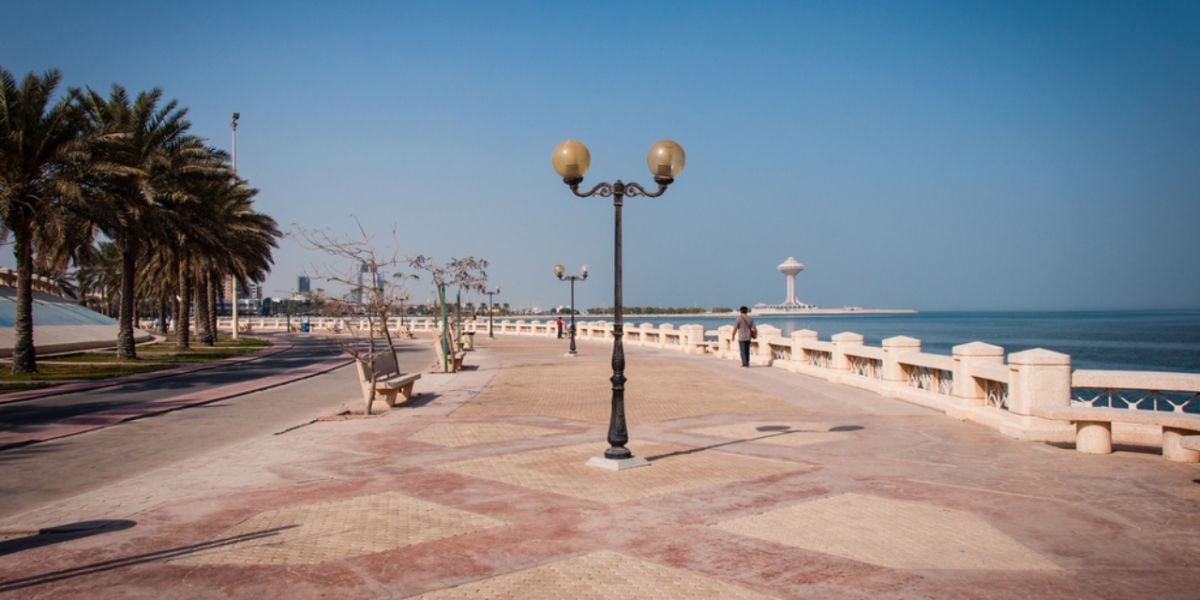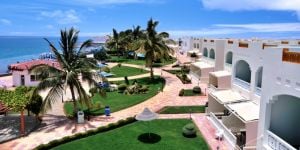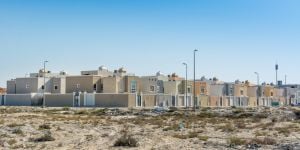
Khobar is the metropolitan city of the Eastern Province. It is widely recognized as the happy medium between Dammam and Dhahran. Separated by a mere 15 km from both cities of the Eastern Province, it is perfectly situated on the Persian Gulf Coast. Like Jeddah, Khobar is widely known for its seaside and relaxed and fairly open lifestyle. Once a fishing port, today the city is an important import-export center.
You will be happy to find that it bears the advantages of being relatively quiet, with a suburban feel while still offering all the convenience of a big city. The city's streets are lined with international merchants and restaurants. Mega malls and supermarkets are plentiful, as are the traditional markets (souks). All the while, the seaside Corniche is beautifully maintained, and family parks are scattered throughout the city.
Expats favor this city because of all the amenities that it provides, such as a relatively short drive to the King Fahd International Airport and an even shorter drive to the King Fahd Causeway, connecting Bahrain to Saudi Arabia. The city also offers enough educational institutions, easing the life of the expat parents. People working in Dammam often tend to live in Khobar for the reasons mentioned above. It is also worth noting that traffic is much less congested than in Riyadh, the capital, which makes commuting a much more pleasant experience.
The nice thing about Khobar is that you can find suitable accommodation at almost any price.
Buy or rent accommodation in Khobar?
While Khobar is quite a popular city with expats, buying property here is not common among expats. There are several reasons for that.
First, most expats living in Khobar are here for work or are dependents of those who are working here. This means that they rarely plan to stay in the country long-term and typically prefer to save their earnings and invest them back home.
Second, buying property in Saudi Arabia is not particularly easy for expats. Usually, non-Saudis ownership of land is connected with investment initiatives. The government recently adopted a law concerning special privilege iqamas/ premium residence permits. Holders of a Premium Residency can own and rent property.
If you cannot afford the special iqama, which costs around SAR 800,000 for permanent residence or SAR 100,000 for renewable iqama, you will probably opt for renting accommodation — typically, in Western-style compounds.
Types of accommodation in Khobar
You'll find a wide range of accommodation options in Khobar, including:
- Large well-known Western compounds;
- Residential apartment buildings;
- Private villas in gated communities;
- Furnished long-term/short-term resident hotels.
Good to know:
As we've mentioned above, a lot of expats prefer to live in well-known Western compounds during their time in Khobar. These residential spaces are basically closed gated communities with security, cameras, and lots of amenities within their walls (fitness facilities, coffee shops, swimming pools, convenience stores, etc.). Living here is a very convenient option for newcomers and a great way to socialize with other expats in the city.
Property rental prices in Khobar
Rental market prices in Khobar vary and fluctuate with the demand. Location and size are two factors that play a part in pricing. On average, here is what you should expect:
- Studio (room with open kitchen, bathroom) - SAR 15,000 - SAR 25,000 per year (USD 4,000 - 5,333)
- 1-bedroom (kitchen, bedroom, washroom) - SAR 25,000 - SAR 40,000 per year (USD 5,333 - 10,666)
- 3-bedroom (a living room, 2 bedrooms, kitchen, washroom) - SAR 30,000 - SAR 50,000 per year (USD 8,000 - 13,333)
Khobar used to be one of the most expensive cities in which to live. Rental prices went down in the 2010s with the decline in oil prices, but have been on the rise again with the country's opening to tourism. Still, in comparison, it is cheaper than Riyadh in terms of accommodation.
Good to know:
The residents of Khobar are primarily employed by the oil sector, (Aramco), and many expats choose to live in neighboring cities and commute.
House hunting in Khobar
Searching for accommodation in Khobar is similar to house-hunting in any other city. However, if you are coming to the city for work, your employer will usually make housing arrangements for you. Having accommodation included in your work contract is a definite plus, and you will be able to focus on other aspects of your move rather than spend time house hunting. However, even if your accommodation is taken care of, study the lease contract carefully before signing it. Do a walkthrough of the property and neighborhood you are about to rent in and let your employer know if, for any reason, you don't feel comfortable here. Finally, if your rental contract is in Arabic, ask your employer to have it officially translated and notarized.
If you are looking for accommodation on your own or want to check out the property market before your move, a good place to start is online. Check out popular websites like Bayut, AqarMap, PropertyFinder, and others.
Good to know:
A typical rental ad on these websites will include a brief description of the accommodation (compound, neighborhood, number of rooms and bathrooms, size, etc.), rent per year (in some cases per month), neighborhood, whether the place is furnished or not, etc.
Another way to look for available accommodation options in Khobar is via social media, expat groups, forums, etc. Check out groups like Expatriates in Al Khobar, Khobar Expats Buy and Sell, and others.
If you are already in Khobar and have had some time to explore the city, you can stop by one of the popular compounds in person and inquire with the compound management office about available rentals.
Property rental contracts in Khobar
The renting process in Khobar is relatively straightforward: you find the place you like, sign the lease, pay the security deposit and rent, and move in.
Note that rent in Saudi Arabia is typically established on an annual basis and paid in installments. If you are able to pay for a year upfront, you will usually be offered a discount. Monthly rent payments are typically an option in compounds or after negotiating with the landlord.
Note that when your lease is over, your deposit will be returned to you (unless the property you've been renting has suffered serious damage).
When signing the lease, you will be asked for the following documents:
- Iqama (residency permit);
- Originals and copies of your passport and visa;
- Marriage certificate (if you are renting with your spouse);
- A letter from your employer specifying your salary and position (in some cases).
When you sign your lease, it is absolutely essential that you register it in the Ejar system set up by the Ministry of Housing. This online portal has been created to manage rental property in Saudi Arabia. Therefore, you will need to provide your Ejar number if you have a dispute with your landlord. To register, you will need to upload a copy of the rental agreement and provide basic information about yourself and the landlord. Note that if you don't register in the Ejar system as a tenant, your Iqama (residence permit) may not be renewed.
Every rental contract should be signed and paid for on the Ejar platform. So make sure you study the lease very carefully before signing it. Rental agreements in Saudi Arabia tend to be quite detailed and often include additional clauses on the tenant's obligations and behavior. For instance, a lot of landlords wouldn't accept tenants with pets and some contracts used to include strict rules regarding visitors of the opposite sex, however this is less and less common nowadays.
Important:
If the contract is in Arabic, have it officially translated and notarized. It can also be helpful to have a colleague or acquaintance who can speak Arabic with you when you negotiate and sign the rental contract. You can also ask your employer to act as a mediator in the renting process.
As a tenant, you must:
- Make rent, utility and other related payments on time;
- Maintain the property you are renting in good state;
- Follow all the rules outlined in the rental agreement;
- Avoid causing any disturbance to your neighbors;
- Not sublet the property or use it for commercial purposes.
The landlord, on the other hand, must do the following:
- Make sure the property is rented out in a proper state;
- Maintain public areas in the building;
- Perform all scheduled repairs;
- Ensure the tenant's privacy;
- Keep the rent price the same throughout the duration of the contract.
Tips for moving to Khobar
When relocating to Saudi Arabia, renting in a residential complex (compound) can make your transition to a new city and a new country easier. When living in a gated community, you will have a buffer between your immediate surroundings and the outside world. Within the walls of the compound, you will be able to dress as you like, have easy access to everyday amenities and a vibrant expat community to socialize with.
Do a proper inspection of the property before signing the lease, take note of all the furniture and appliances and mention any repairs that you want to be done before you move in.
Explore the neighborhood of the property you are renting. It's important that you feel comfortable here and that all your daily amenities are within walking distance. If you are new to the city, it's a good idea to do a proper tour of all available neighborhoods prior to making your decision. Consult your expat colleagues and check on local expat forums about the best neighborhoods to settle in.
Once you've paid the security deposit, make sure to save the receipt the landlord gives you. This means making sure that, allowing a few days for processing, your contract should be showing “Paid” on the ejar platform. You will need to present the receipt when your lease is over to get your deposit back.
When outside of your apartment or compound, do your best to keep to local social norms. This may include a specific dress code, respecting the rules of the Holy Month of Ramadan and more.
Note that Friday is a day off in Saudi Arabia and if you need to have any repairs or maintenance work done, take this into account when making arrangements. A lot of companies will be open for business after 4 pm on Friday.
Once you've signed the lease, paid the rent and deposit, you will be ready to move in. Most apartments advertised on real estate websites are ready to move in once the lease is signed. When renting in a compound, however, there may be a waiting list in place. In this case, you might need to arrange for temporary accommodation while you are waiting.
We do our best to provide accurate and up to date information. However, if you have noticed any inaccuracies in this article, please let us know in the comments section below.








